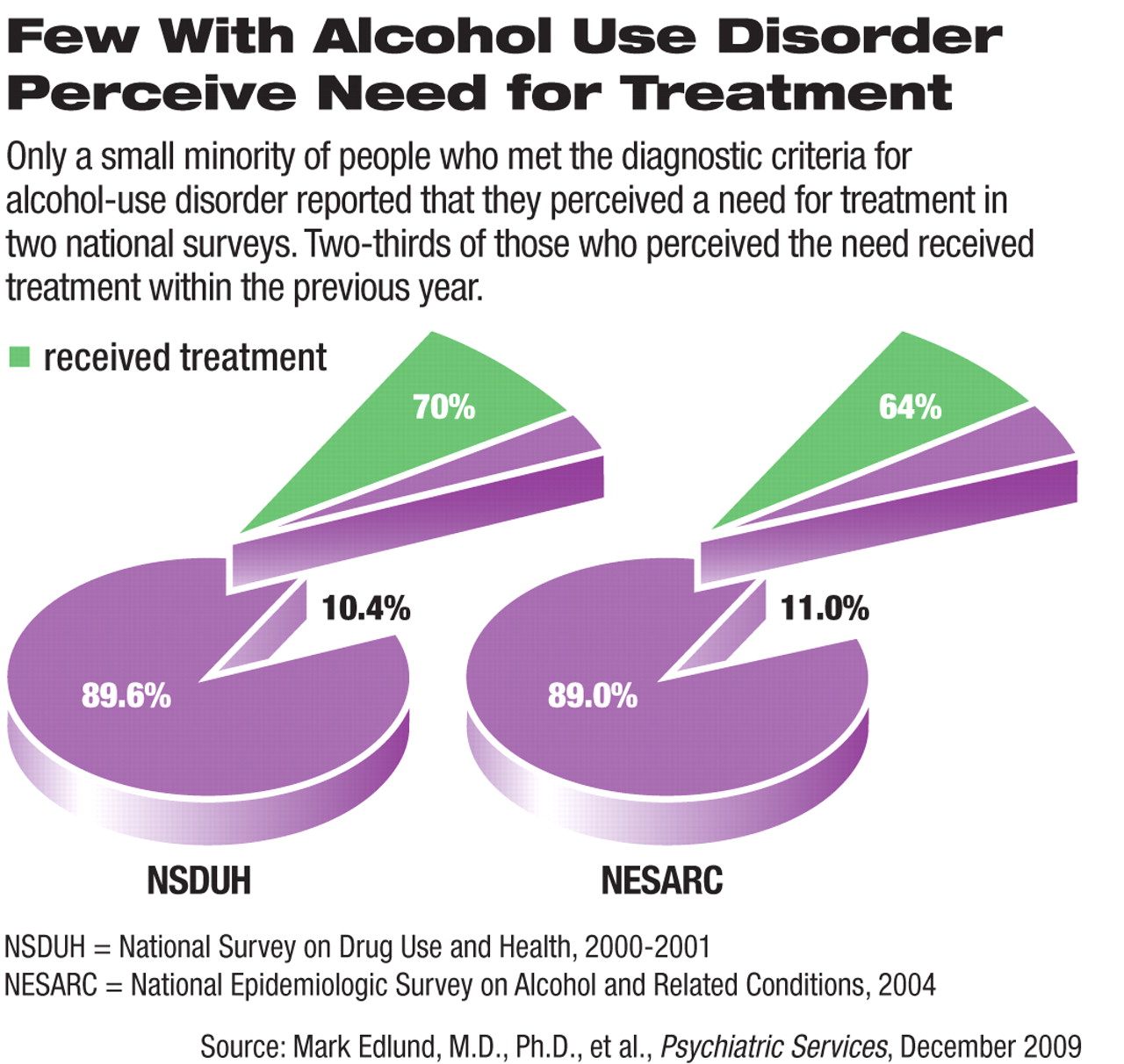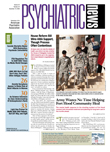A lack of perceived need for treatment is still a key reason for the low rate of treatment in people with alcohol-use disorder and for the lack of progress in reducing the scale of this problem, according to an analysis of recent large surveys in the United States.
In the National Survey on Drug Use and Health (NSDUH) dataset, 7,009 respondents met the diagnostic criteria for an alcohol-use disorder (dependence or abuse), among whom 89.6 percent said they did not perceive a need for treatment or counseling for their alcohol use in the prior 12 months. In the 3,305 participants in the National Epidemiologic Survey on Alcohol and Related Conditions (NESARC) who met the criteria for alcohol-use disorder, a similar rate of 89 percent said they did not think they needed treatment for alcohol-use treatment.
In this analysis, anyone who reported getting treatment for an alcohol-use disorder in the prior 12 months was classified as having perceived a need, including those who might have done so at the urging of family and friends. Thus, by definition none of those who did not perceive a need for treatment received treatment for alcohol use in the prior year.
Of the approximately 10 percent of the respondents who indicated a perceived need for treatment, about two-thirds (64 percent to 70 percent) actually sought and received treatment for alcohol use during the past year, suggesting that recognition of the problem is strongly associated with taking action.
“Our results offer little reason for optimism concerning perceived need, because the percentage of persons with perceived need in the National Longitudinal Alcohol Epidemiologic Survey … in the early 1990s was slightly higher than the percentage we found, indicating no progress on this important front,” wrote the researchers, led by Mark Edlund, M.D., Ph.D., an assistant professor of psychiatry at the University of Arkansas for Medical Sciences.
The NSDUH was conducted in 2000 and 2001, and the NESARC was conducted in 2004.
Further analyses suggested that demographic factors generally did not have a strong effect on the perception of need for treatment, but certain clinical diagnostic criteria did. For example, “recurrent alcohol-related legal problems” was the strongest predictor of perceived need for treatment. Serious psychological distress was also strongly associated with perceived need.
In order to make a dent in the major problem of alcohol-use disorder, increasing the awareness of and changing the perception about the disorder should be the area in which to concentrate public-health efforts, the authors suggested. They pointed to alcohol-use screening and brief intervention in the primary care setting as key areas in which these efforts that can make a big difference.
The study was published in the December Psychiatric Services and funded by the National Institute on Alcohol Abuse and Alcoholism.

